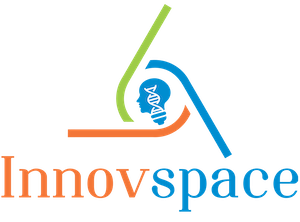Tools and Technologies that Power Virtual Coworking Offices

In today's rapidly evolving work environment, virtual coworking offices have emerged as a popular alternative to traditional office spaces. They offer flexibility, cost savings, and access to a global talent pool. To create an effective virtual coworking space, various tools and technologies are essential. Here's a look at the key components that power virtual coworking offices:
1. Communication Platforms
Effective communication is the backbone of any successful virtual coworking office. These platforms facilitate real-time interaction and collaboration among remote workers:
- Slack: A widely used messaging app that allows teams to communicate through channels, direct messages, and threads. It integrates with numerous other tools, enhancing productivity.
- Microsoft Teams: Combines workplace chat, meetings, file storage, and application integration. It's especially popular among organizations already using Microsoft Office 365.
- Zoom: Known for its reliable video conferencing capabilities, Zoom is ideal for virtual meetings, webinars, and collaborative sessions.
2. Project Management Tools
Keeping track of tasks, deadlines, and project progress is crucial in a virtual coworking environment. These tools help teams stay organized and on track:
- Trello: A visual project management tool that uses boards, lists, and cards to help teams organize tasks and projects. It's user-friendly and highly customizable.
- Asana: A comprehensive project management tool that enables teams to plan, track, and manage work. It offers various views, including lists, boards, and timelines.
- Jira: Ideal for software development teams, Jira offers agile project management features, including sprint planning, bug tracking, and reporting.
3. File Sharing and Collaboration
Secure and efficient file sharing and collaboration are essential for virtual coworking offices. These tools provide seamless document management:
- Google Workspace (formerly G Suite): A suite of cloud-based productivity tools, including Google Drive, Docs, Sheets, and Slides. It allows real-time collaboration and easy sharing.
- Dropbox: Offers secure cloud storage and file sharing with features like file synchronization, collaboration, and backup.
- Microsoft OneDrive: Integrated with Microsoft Office, OneDrive provides cloud storage and file sharing with advanced security features.
4. Virtual Collaboration Spaces
Creating a sense of presence and community in a virtual coworking office can be challenging. These tools help simulate a physical office environment:
- Sococo: A virtual office platform that replicates the physical office layout with virtual rooms and spaces. It enables spontaneous interactions and visualizes team presence.
- Remo: An interactive virtual event and networking platform that allows users to move between tables and rooms, fostering networking and collaboration.
- Gather: Combines video chat with a customizable virtual space where users can move around and interact, mimicking a real-world office or event.
5. Time Management and Productivity Tools
Managing time and staying productive is vital for remote workers. These tools assist in tracking time and enhancing productivity:
- Toggl: A time tracking tool that helps individuals and teams monitor how much time is spent on various tasks and projects. It offers detailed reports and insights.
- RescueTime: Analyzes how time is spent on devices and provides reports on productivity, helping users identify and eliminate distractions.
- Focus@Will: A music service designed to improve focus and concentration, using scientifically optimized music tracks.
6.Cybersecurity and Privacy Tools
Ensuring data security and privacy is paramount in a virtual coworking environment. These tools help protect sensitive information:
- LastPass: A password manager that stores and encrypts passwords, making it easy to manage and secure access to various accounts.
- NordVPN: A virtual private network (VPN) service that encrypts internet traffic and hides IP addresses, ensuring secure and private online activities.
- Bitdefender: Provides comprehensive cybersecurity solutions, including antivirus, anti-malware, and anti-phishing protection.
Conclusion:
The success of a virtual coworking office hinges on the effective use of these tools and technologies. By leveraging communication platforms, project management tools, file sharing and collaboration solutions, virtual collaboration spaces, time management tools, and cybersecurity measures, virtual coworking offices can create a productive, collaborative, and secure environment for remote workers. As technology continues to advance, these tools will evolve, further enhancing the virtual coworking experience and reshaping the future of work.
